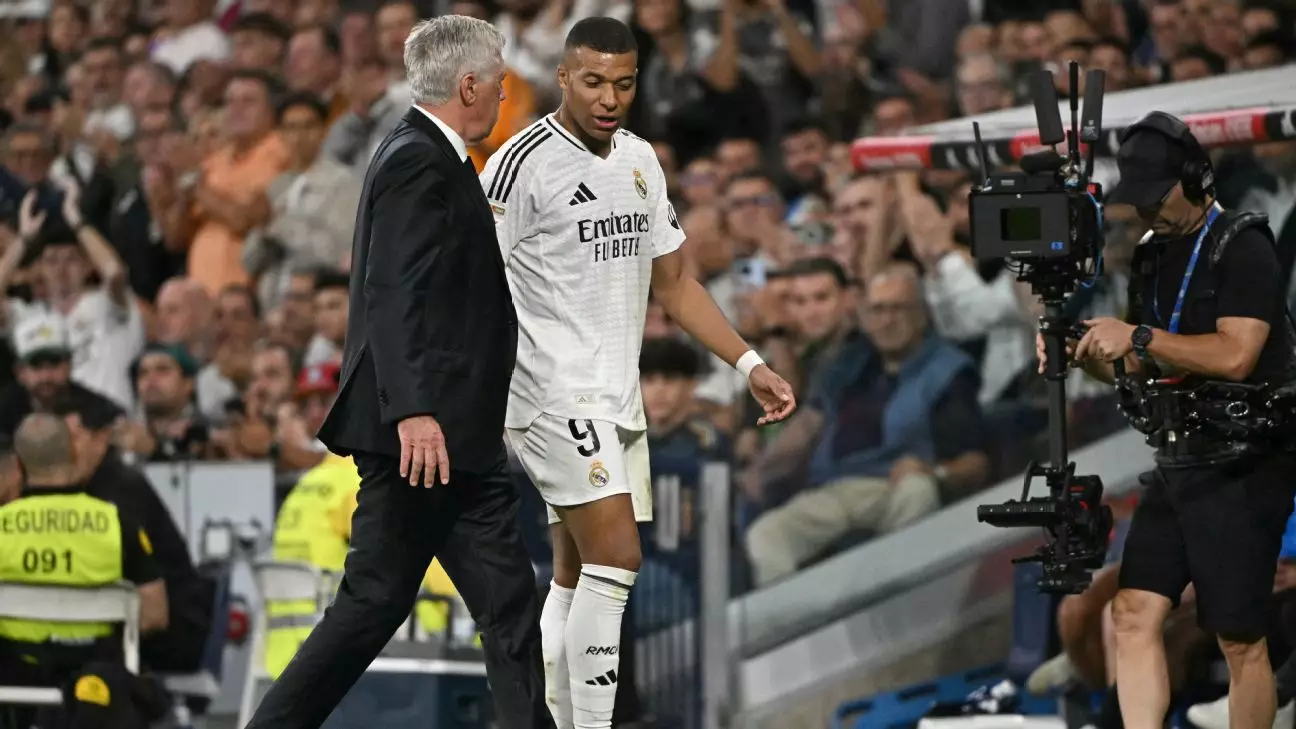In the heated atmosphere of La Liga, the tension surrounding Real Madrid’s recent grievances with refereeing continues to escalate. Carlo Ancelotti, Real Madrid’s head coach, has publicly countered the assertion made by LaLiga president Javier Tebas, who accused the club of “losing their minds” over their consistent complaints regarding officiating decisions. Ancelotti clarified that the club seeks to address evident disparities and faults rather than engage in a narrative of victimhood. This incident not only highlights the conflicting perspectives in Spanish football but also raises critical questions about the refereeing standards and accountability within the league’s framework.
Ancelotti’s insistence is rooted in the club’s desire to elevate the standard of officiating rather than simply amplify dissatisfaction. He articulated that the complaints arise not from a place of emotional upheaval but rather a constructive ethos to encourage improvements in a system perceived as flawed. At the center of this dialogue is Madrid’s formal complaint to the Spanish Football Federation (RFEF), stemming from a controversial non-red card decision against Espanyol’s Carlos Romero during a pivotal match. These dynamics unfold against the backdrop of an intense rivalry with Atlético Madrid, heightening the importance of transparency in officiating to ensure fair competition.
The tension reached a new peak during a recent meeting among LaLiga clubs, where Tebas’s dismissive remarks further inflamed the situation. His emphasis on Madrid’s supposed fixation with grievance narratives showcases a larger cultural discourse within Spanish football, one where accusations of bias and favoritism often shadow competitive encounters. The controversy surrounding referee Alejandro Muñiz Ruiz’s choices during the match against Espanyol is emblematic of the broader issues surrounding officiating integrity.
Ancelotti expressed disappointment over the RFEF’s reticence to release crucial audio recordings concerning the contentious moments in the match, suggesting that transparency is vital for trust within the sport. The coach highlighted that while many assume Real Madrid enjoys preferential treatment, the reality is that their call for change challenges the status quo, prompting defensiveness from other entities within the league. Ancelotti’s critique underscores the paradox wherein a club’s effort to advocate for fairness can inadvertently provoke backlash.
As the heated derby against Atlético Madrid approaches, social media has become a battleground for rival narratives. Atlético’s social media channels have not held back in leveraging the situation, suggesting that Real Madrid is attempting to manipulate referee decisions. Such portrayals exacerbate the competitive vigor inherent to El Derbi, sparking increased media scrutiny and fan interactions, further complicating the narrative around Real Madrid’s complaints.
Diego Simeone, Atlético’s coach, has strategically redirected focus away from external controversies, insisting that his team prioritize their performance over refereeing concerns. His deflection highlights the psychological and tactical dimensions of sports management, wherein coaches must navigate the landscape of competitiveness while maintaining focus on their team’s objectives. Ancelotti’s remarks further echo this sentiment, insisting that requests for audio recordings are rooted in procedural fairness rather than underhanded tactics.
In addressing the implications of ongoing controversies, Ancelotti also reflected on the tactical challenges facing his squad. With a world-class attacking front composed of Kylian Mbappé, Vinícius Júnior, Jude Bellingham, and Rodrygo, the manager finds himself in a precarious position, navigating the need for effective offense while addressing a defensive lineup beleaguered by injuries. This delicate balancing act emphasizes the complexity of modern football management, where strategic decisions can be influenced by external pressures, including public scrutiny and refereeing challenges.
Ancelotti’s philosophy champions maintaining equilibrium among attacking prowess and defensive solidity, rejecting simplistic solutions that call for the removal of key players solely for the sake of balance. This approach not only showcases his tactical intelligence but also underscores the importance of fostering a cohesive team dynamic amidst adversity.
As Real Madrid continues to contest their grievances with Liga officials in a landscape fraught with tension and rivalry, Ancelotti’s calls for improvement and transparency serve as a reminder of the underlying complexities within elite football. The intertwining narratives of competition, fairness, and institutional integrity highlight the challenges that persist beyond the pitch. Moving forward, the resolution of these controversies will be critical not only for Real Madrid but for the broader fabric of La Liga, where the spirit of fair play and competitive equity must ultimately prevail.

